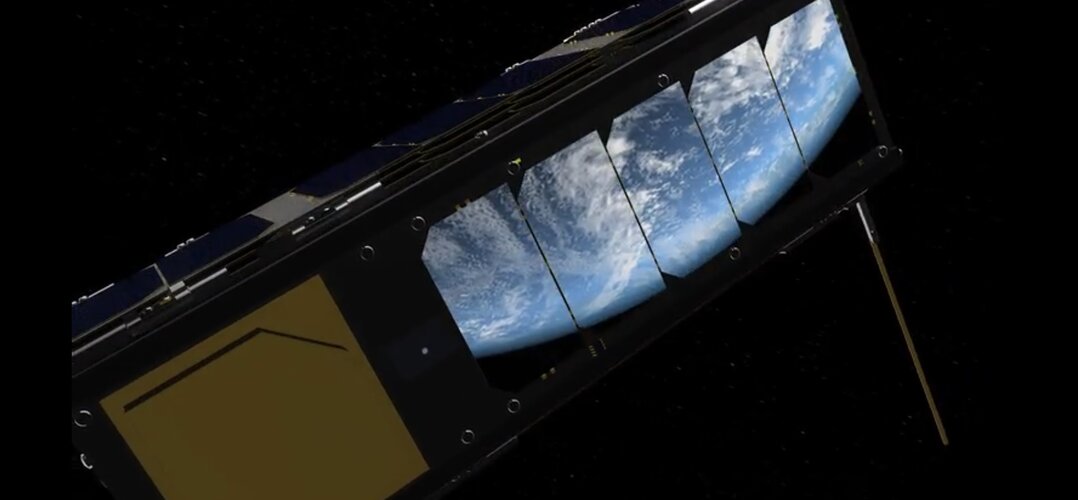NASA's latest astronaut trainees are already dreaming of the Moon
Wednesday, 08 December 2021 08:20
As a former national team cyclist who'd fix her own bikes, and before that as a child helping out on her family's cattle farm, NASA trainee astronaut Christina Birch has plenty of experience working with her hands.
With America's sights now set on returning to the Moon—this time establishing long-term habitats—Birch is dreaming big: "If I could assist the mission in any way, by helping build something on the Moon, that would be super cool," she told AFP.
The 35-year-old is one of ten new recruits announced by the US space agency this week, the latest members of what it calls the "Artemis generation," named for the Artemis program to put American boots on lunar soil later this decade, and later on to Mars.
Selected from a competitive field of 12,000 applicants, their diverse profiles have been picked with the goal of accomplishing humankind's toughest exploration missions to date.
Among them are high-level scientists. Chris Williams, 38, is a medical physicist and assistant professor at Harvard, whose research focused on developing image guidance techniques for cancer treatments.
Russian rocket carrying Japanese billionaire docks at ISS
Wednesday, 08 December 2021 08:16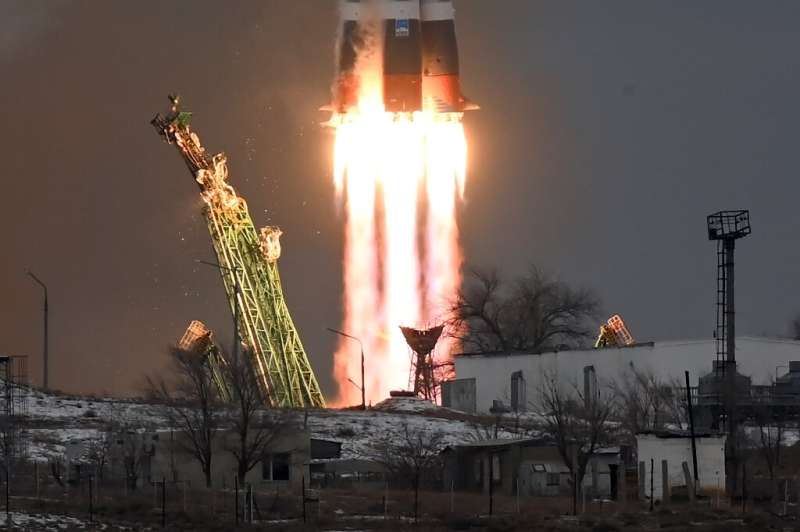
A Russian rocket lifted off on Wednesday carrying a Japanese billionaire to the International Space Station, marking the country's return to space tourism after a decade-long pause that saw the rise of competition from US companies.
Online fashion tycoon Yusaku Maezawa and his production assistant Yozo Hirano blasted off from the Russian-operated Baikonur cosmodrome in Kazakhstan at 0738 GMT, an AFP correspondent at the scene reported.
Their journey aboard the three-person Soyuz spacecraft piloted by cosmonaut Alexander Misurkin will take just over six hours, capping a banner year that many have seen as a turning point for private space travel.
Billionaires, Elon Musk, Jeff Bezos and Richard Branson all made breakthrough commercial tourism flights this year, bursting into a market Russia is keen to defend.
Japanese billionaire arrives at ISS
Wednesday, 08 December 2021 08:16
A Russian rocket lifted off on Wednesday carrying a Japanese billionaire to the International Space Station, marking the country's return to space tourism after a decade-long pause that saw the rise of competition from US companies.
Online fashion tycoon Yusaku Maezawa and his production assistant Yozo Hirano blasted off from the Russian-operated Baikonur cosmodrome in Kazakhstan at 0738 GMT, an AFP correspondent at the scene reported.
Their journey aboard the three-person Soyuz spacecraft piloted by cosmonaut Alexander Misurkin will take just over six hours, capping a banner year that many have seen as a turning point for private space travel.
Billionaires, Elon Musk, Jeff Bezos and Richard Branson all made breakthrough commercial tourism flights this year, bursting into a market Russia is keen to defend.
Former JSC director Mark Geyer passes away
Tuesday, 07 December 2021 23:52
Mark Geyer, former head of the Johnson Space Center and manager of the Orion program, died Dec. 7 of cancer.
Tomorrow.io to grow weather constellation through SPAC deal
Tuesday, 07 December 2021 22:10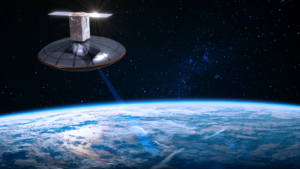
Tomorrow.io said Dec. 7 it stands to raise up to $420 million for its planned network of weather satellites by merging with Pine Technology Acquisition Corp., the latest special purpose acquisition company (SPAC) to invest in the space industry.
Gemini South telescope catches a one-winged butterfly
Tuesday, 07 December 2021 20:46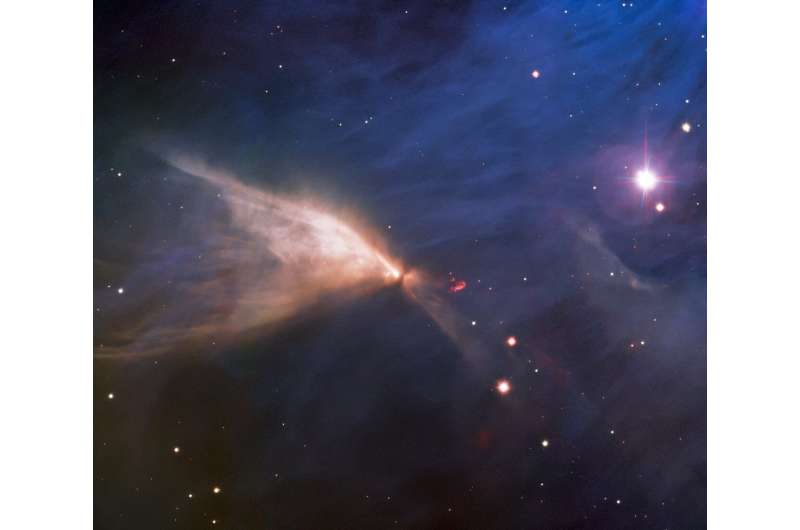
Final defense bill nixes space guard, directs classification review of space programs
Tuesday, 07 December 2021 20:34
The Senate and House Armed Services Committees in a compromise National Defense Authorization Act for Fiscal Year 2022 removed language that would have created a Space National Guard, and included a provision directing DoD to identify space programs that could be declassified.
Valley Tech Systems wins $94 million missile defense contract
Tuesday, 07 December 2021 18:07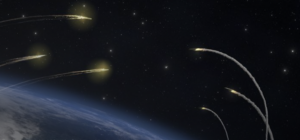
Valley Tech Systems, a firm recently acquired by Voyager Space, won a $94 million contract from Lockheed Martin to provide a solid propulsion subsystem for the U.S. Missile Defense Agency’s Next Generation Interceptor.
China’s SAR satellite surge continues with new constellation plan
Tuesday, 07 December 2021 17:15
A new Chinese constellation for disaster prevention, early warning and natural resource monitoring will bring yet more players into developing small synthetic aperture satellites in the country.
Andesat taps Astranis for Peru’s first dedicated telecoms satellite
Tuesday, 07 December 2021 17:03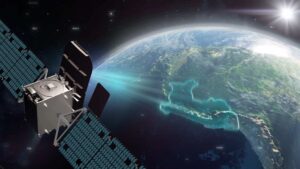
Cellular backhaul provider Andesat has ordered Peru’s first dedicated telecoms satellite in a deal with Astranis, which will build a teleport in the country ahead of the spacecraft’s expected 2023 launch.
Op-ed | U.S. must stop Russia before space turns into a wasteland
Tuesday, 07 December 2021 16:02
The growth generated from investments will be left unrealized if the government falls short in protecting the space domain.
Webb and Ariane 5 – Preparing for launch
Tuesday, 07 December 2021 15:30 Video:
00:04:00
Video:
00:04:00
The world’s next generation cosmic observatory, the James Webb Space Telescope, is due for launch on an Ariane 5 from Europe’s Spaceport in French Guiana.
Webb is a joint project between NASA, the European Space Agency, and the Canadian Space Agency and is a remarkable feat of engineering and technology. The telescope is fitted with the largest astronomical mirror ever flown in space, sophisticated new scientific instruments, and a sunshield the size of a tennis court.
Ariane 5 is one of the most reliable launch vehicles in the world and special modifications have been made for the preparation and
India, Russia agree to enhance space cooperation
Tuesday, 07 December 2021 15:19
India and Russia agreed Dec. 6 to strengthen cooperation in the space sector, including human spaceflight programs and satellite navigation.
Airbus will build ESA's Ariel exoplanet satellite
Tuesday, 07 December 2021 13:07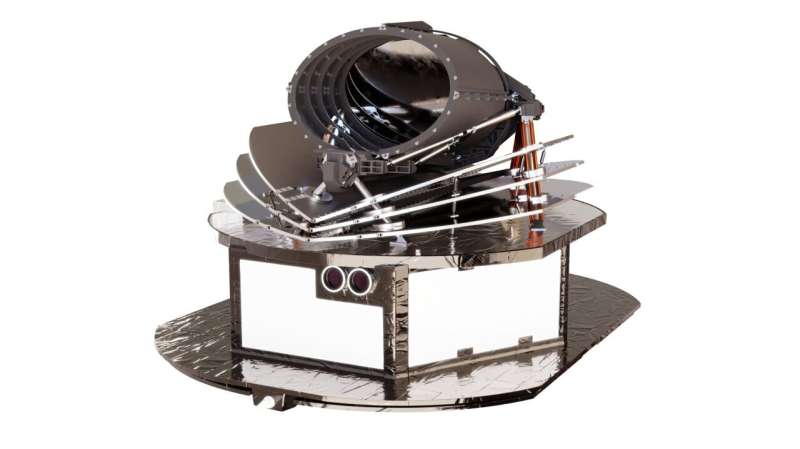
ESA and Airbus have signed a contract to move forward with the design and construction of the Atmospheric Remote-sensing Infrared Exoplanet Large-survey, Ariel, planned for launch in 2029.
Ariel is the third in a trio of dedicated exoplanet missions conceived by ESA focusing on various aspects of this rapidly evolving subject area. It will follow Cheops, which launched in 2019, and Plato, scheduled for launch in 2026.
Ariel will study the composition of exoplanets, how they formed and how they evolve, by surveying a diverse sample of about 1000 extrasolar planets, simultaneously in visible and infrared wavelengths.
It is the first mission dedicated to measuring the chemical composition and thermal structures of exoplanets, linking them to the host star's environment. This will fill a significant gap in our knowledge of how the planet's chemistry is linked to the environment where it formed, or if and how the type of host star drives the physics and chemistry of the planet's evolution.

